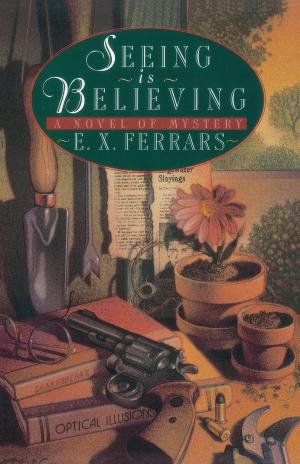| Author: | Joanot Martorell | ISBN: | 9780307828545 |
| Publisher: | Knopf Doubleday Publishing Group | Publication: | September 4, 2013 |
| Imprint: | Schocken | Language: | English |
| Author: | Joanot Martorell |
| ISBN: | 9780307828545 |
| Publisher: | Knopf Doubleday Publishing Group |
| Publication: | September 4, 2013 |
| Imprint: | Schocken |
| Language: | English |
Translated by David H. Rosenthal
Here is a recovered Renaissance classic, a Catalan novel of chivalry done into English for the first time by a gifted poet and translator. Cervantes singles out Tirant lo Blanc for very special praise in Don Quixote—in the scene in which the don’s friends, eager to save his sanity, are making a bonfire of the romances of chivalry which have constituted his sole intellectual and spiritual nourishments. Cervantes makes a pointed exception of this work, putting into the mouth of a character the suggestion that the book deserves to remain in print throughout the ages.
So it has—and now it can be read in David H. Rosenthal’s lively English. Tirant lo Blanc presents the life of the Renaissance nobility: politics, lovemaking, and war. The hero participates in all these activities with a great deal of dash and good humor, there is much excellent conversation along the way, and by the time the story has come to its satisfying conclusion, the modern reader is convinced that life was quite as complex 500 years ago as it is today—and, for the European nobility, perhaps a good deal more entertaining.
Translated by David H. Rosenthal
Here is a recovered Renaissance classic, a Catalan novel of chivalry done into English for the first time by a gifted poet and translator. Cervantes singles out Tirant lo Blanc for very special praise in Don Quixote—in the scene in which the don’s friends, eager to save his sanity, are making a bonfire of the romances of chivalry which have constituted his sole intellectual and spiritual nourishments. Cervantes makes a pointed exception of this work, putting into the mouth of a character the suggestion that the book deserves to remain in print throughout the ages.
So it has—and now it can be read in David H. Rosenthal’s lively English. Tirant lo Blanc presents the life of the Renaissance nobility: politics, lovemaking, and war. The hero participates in all these activities with a great deal of dash and good humor, there is much excellent conversation along the way, and by the time the story has come to its satisfying conclusion, the modern reader is convinced that life was quite as complex 500 years ago as it is today—and, for the European nobility, perhaps a good deal more entertaining.















